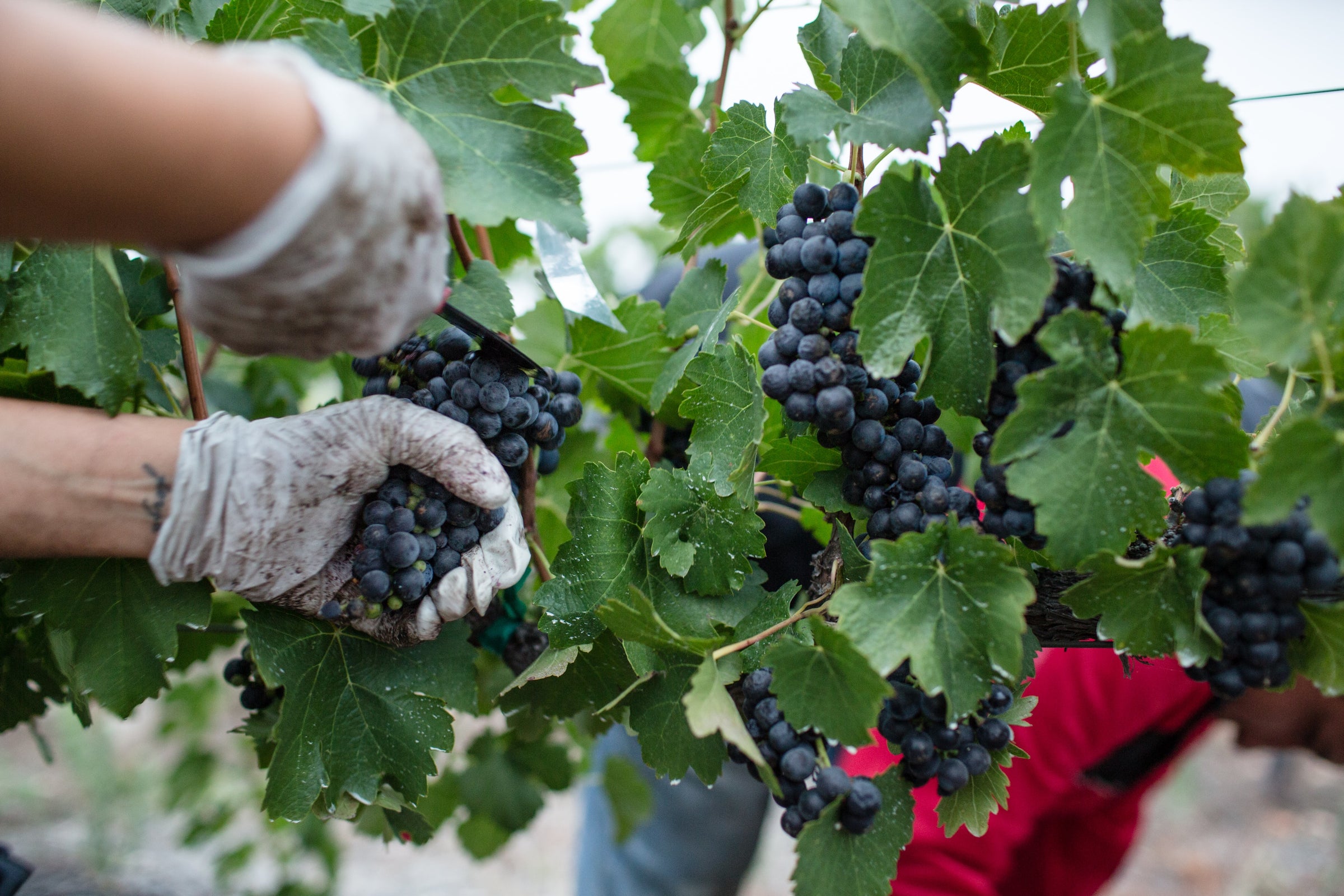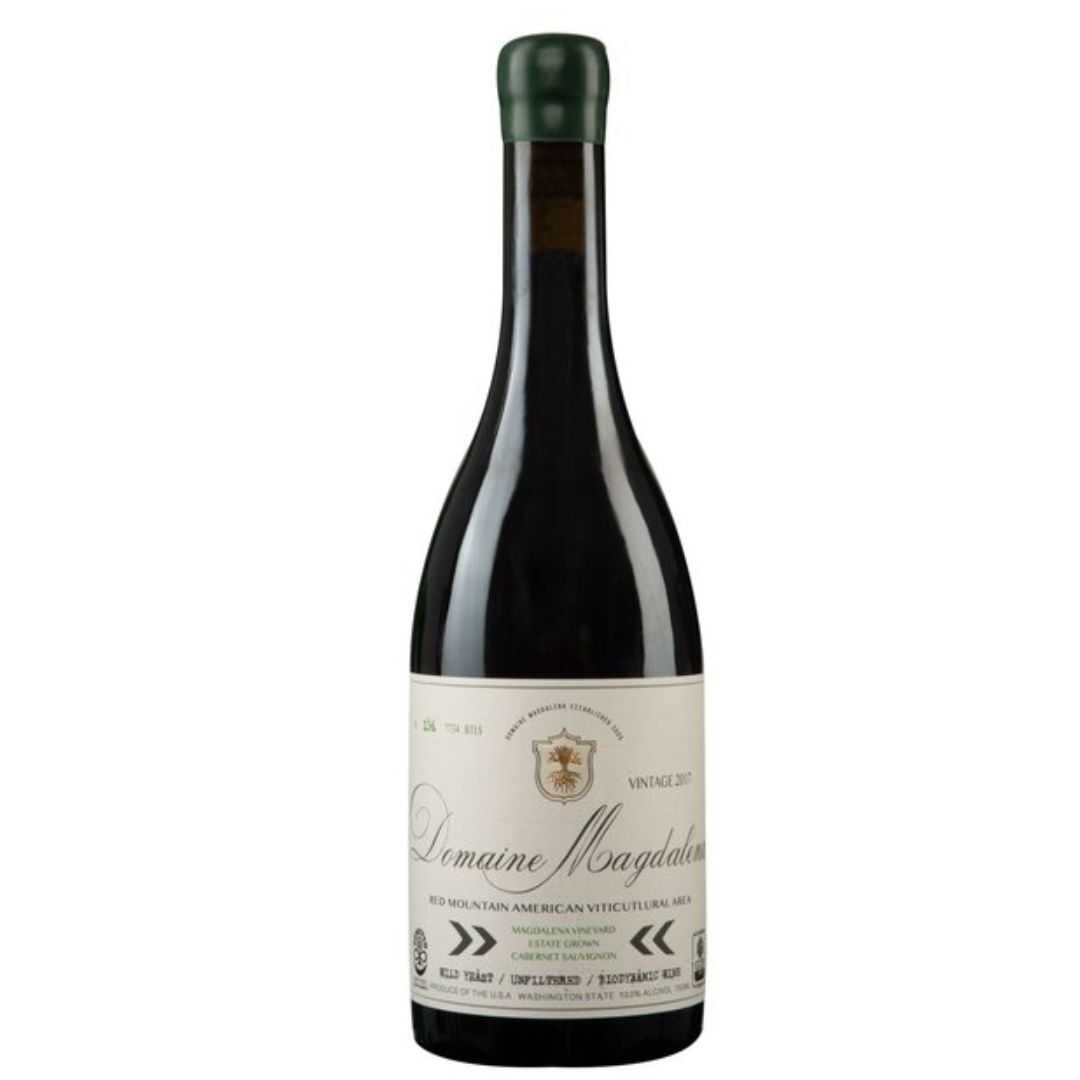
Domaine Magdalena
As the world gets hotter and more polluted, the imperative for farmers to pivot to more sustainable practices increases—as does the imperative for consumers to support these wine producers with their wallets. You’ve likely heard the terms sustainability, organic, maybe biodynamics, regenerative farming, and natural wine. While these concepts share certain elements, largely based on the degree of withdraw from damaging agricultural practices, they mean different things.
To learn more about how biodynamic farming affects viticulture and winemaking as well as aids in the tolerance of climate change in the Red Mountain AVA of Washington State, I turned to a small grower called Domaine Magdalena.
Maggie Hedges, owner/grower of Domaine Magdalena, runs the winery with her husband Christophe Hedges. At Domaine Magdalena, they have grown four acres of Cabernet Sauvignon organically since 2005, and biodynamically with Demeter certification since 2011. Because their family lives on the farm, a healthy environment in which to raise their children defined their farming practices from day one.
Maggie Hedges


